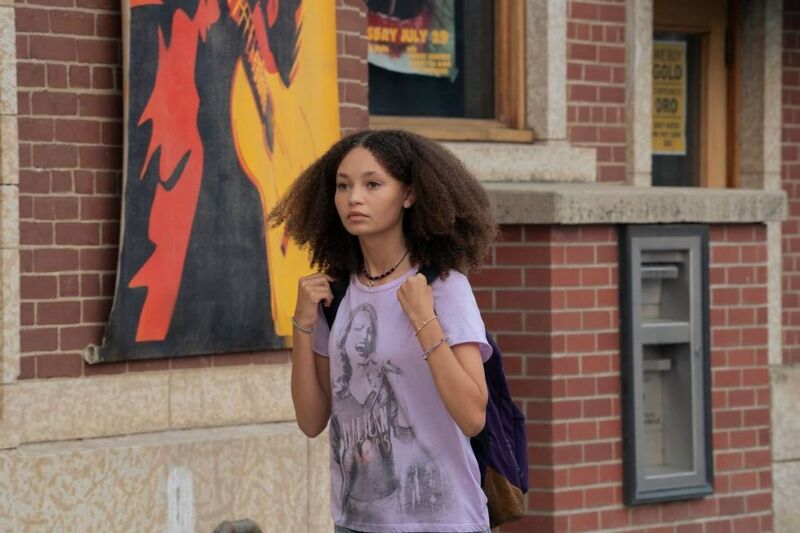
New episodes of The Last of Us will premiere on HBO every Sunday night, and we'll be recapping them here every Monday morning. For this extra-long series premiere, critics Kyle Orland and Andrew Cunningham dive deep into the differences between telling a convincing apocalyptic story in games versus doing so in a TV series and will examine whether the source material ends up helping or hindering this adaptation.
While we don't delve into every single plot point of the premiere episode, there are obviously heavy spoilers contained within, so go watch the episode first if you want to go in fresh.
Andrew: I have never played the game! Which is why I am here, obviously. I haven't been avoiding it on purpose, it's just that I play maybe half a dozen games a year at this point, and the vast majority of them are either Nintendo-hard 2D action-platformers or games about catching pocketable monsters. Every six months or so, when they release a new remastered version of The Last Of Us, I think, "Maybe this time," but it just hasn't happened.
I have a broad-strokes, Wikipedia-level familiarity with the major plot beats. I also have a few touchpoints for pandemic- or contagion-adjacent apocalypse fiction (top of mind: HBO's Station Eleven show but not the book, Max Brooks' World War Z book but not the movie) that I think are going to serve me well here.
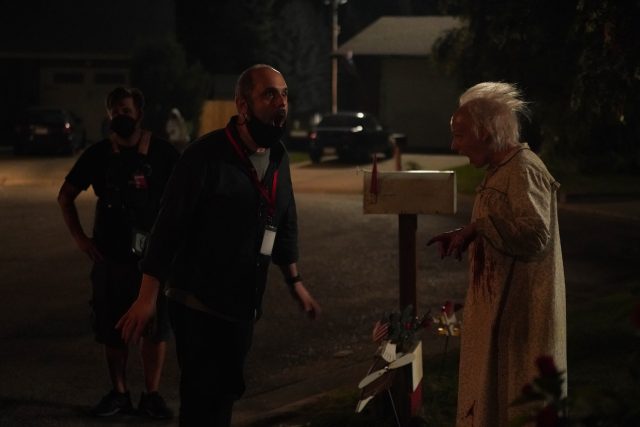
Kyle: No, that part was completely new actually, but I liked how it set things up. Probably useful given how much more "pandemic aware" we all are now compared to 2013, when the game came out. I was referring to the whole outbreak sequence leading up to Sarah's death. While they stretched things out and fleshed out some characters a bit, I was really struck by how familiar some of the key moments were. That's not just dialogue from the games, but even the camera angles and background items were eerily familiar at many points. Even these days, I feel like there aren't too many video game cut scenes that could make the transition to "prestige TV" so intact.
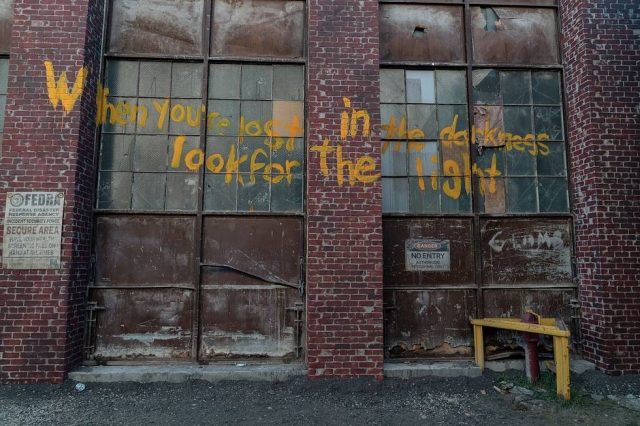
Andrew: So that raises a question I am going to ask you a bunch of times, I think—how much of that opening sequence is gameplay, and how much of it is cinematic? To what extent is the show adapting the actual game-y parts of The Last of Us, and to what extent are we watching actors play out scripted cutscenes? There were definitely one or two moments in the show where a character says something like, "We have to go find a car battery, and then go to this location," that made me feel like I should see some kind of list of objectives pop up on my TV screen, but those mostly come later.
Kyle: To the first part, most of the game up until Sarah's death is just cut scene or minimally interactive (i.e., walk around and/or look at some stuff). It also goes by much more quickly in the game, hitting the key beats and then getting to the time jump more quickly. The car battery thing also had me thinking "Objectives List," even though The Last of Us isn't really that kind of open-world game (there's a different plot MacGuffin driving Joel and Tess' movement toward Ellie in the game). You can definitely still see the game narrative's tendency toward, "We need some excuse to get the characters moving (which will lead them through shooty sections with lots of infected)" even though the shooty bits are largely missing here.
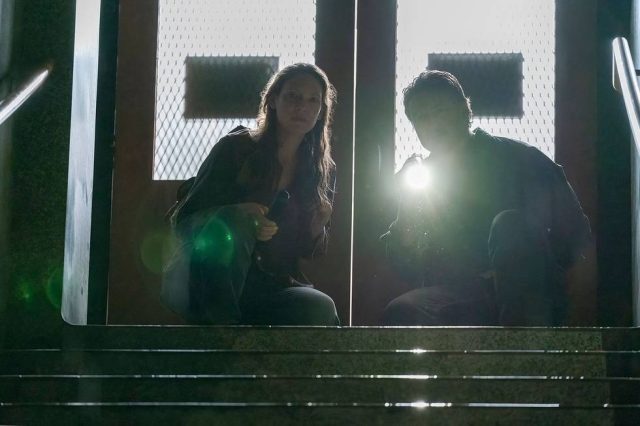
Andrew: What hit me about the opening sequence was that it did traffic pretty heavily in genre tropes, things like Hearing About Something Going Wrong on the News and Then Tuning It Out, The Animals Always Know First, Too Many People Are Trying to Run Away at Once, and Plane Full of Infected Goes Down. Fungal infection or virus, the active "zombies" we do see are recognizably 28 Days Later-y. Leaning on tropes isn't inherently bad! Predictable tropes, ably executed, is something I really liked about Star Trek: Strange New Worlds last year, to bring a wholly unrelated property into the conversation.
Kyle: As a game player, I don't know if I'm getting more out of the show, but I do get some added dramatic irony of knowing what's going to happen to the major players. I also keep comparing the characterizations to the game—for Ellie, especially, they changed her backstory and her relationship with the Fireflies and Marlene quite a bit. I'm wondering what you thought of Ellie in particular and the (somewhat unsubtle) slow reveal of what makes Ellie special...
Andrew: Yeah, that little blink-and-you-miss-it reveal at the end, when three other things were also happening, was maybe not as artful as it could have been—I think the show could have held off on that particular mystery for an episode or two and given it more room to breathe. I am curious to see more about her and who she is and what she can do. In Station Eleven, we see what happens to a young plucky girl when "normality" is stripped away and she's forced to adapt to a rapidly changing post-collapse society; the show's timeline means Ellie has never known anything other than the world the way it is now, and I hope the show explores that aspect of her character now that we know she's a smart and potty-mouthed kid who has Seen Some Stuff.
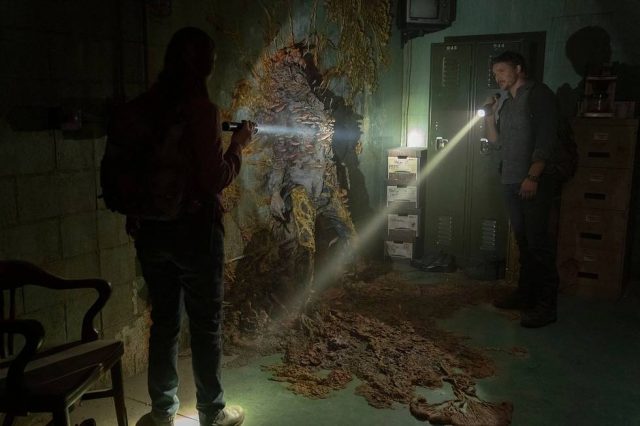
Kyle: The generation gap between pre-crisis Joel and post-crisis Ellie is definitely a Big Theme in the game, and I'm looking forward to the show having even more space to dig into that. Ellie's smartness and smart mouth definitely won me over in the game, but I probably loved her even more because she was the computer-controlled NPC who frequently saved my butt or distracted an infected in a key combat moment.
Andrew: Yes! So much of what makes a game's story work is the element of self-insertion, or the dopamine hit you get because you made the story progress instead of watching it progress. A show can't get me as invested in a helpful side character who finds me items, partly because a helpful side character who is constantly handing things to the main character would be... weird in a show. (Sorry, now I'm imagining a BioShock TV show where we watch the main character stand at an ammo vending machine for 15 minutes every episode.)
Has the show changed anything else to help passive viewers get as invested in these characters as game players seem to be?
Kyle: So far the changes have mainly been taking the time to flesh out backstories and editing things to work without constant "you shoot a bunch of people/infected" breaks. The main story beats happen much quicker in the game, too, like they're eager to get players back to the action. In the TV show, they have more luxury to slowly explore what motivates these characters. At this point in the game and the show, though, it's mainly just been establishing the world and the characters (which both mediums do with a really efficient minimum of exposition). I'm looking forward to moments I know are coming that establish the relationships that make you care about these characters.
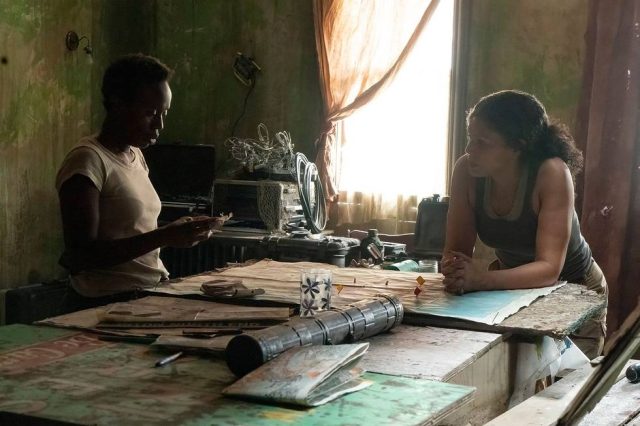
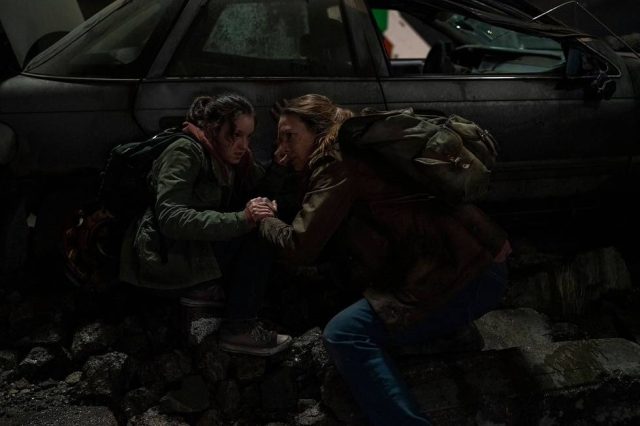
Andrew: Honestly, that was the part that felt the most generically video-game-y to me. These kinds of apocalypse games need to include either fascists or terrorists or both so that you can occasionally shoot at something other than a zombie. The show pretty clearly leans in the direction of the Fireflies, both because we're always supposed to root for the Rebel Alliance stand-in and because it's an Army guy who shoots Joel's young daughter dead in his arms. But if they factor heavily into future episodes, I'm going to need to know more about what they're fighting for, exactly.
https://ift.tt/uvcbXA2
Entertainment
Bagikan Berita Ini














0 Response to "Kyle and Andrew dissect The Last of Us television premiere - Ars Technica"
Post a Comment